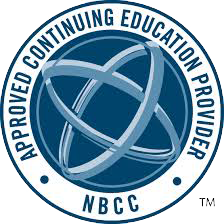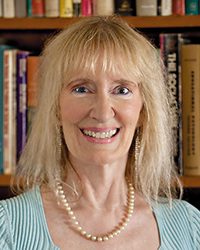Integrating Psychodynamic Techniques in Modern Therapy
Sponsored by the University of Miami Miller School of Medicine Department of Psychiatry and Behavioral Sciences.
Monday – Friday
9:00 a.m. – 12:15 p.m. EST
This course is offered in-person only.
Although you might pride yourself on being able to offer your clients plenty of support, do you sometimes worry that you are not providing them with enough challenge? Or do you sometimes have difficulty describing how you think psychotherapy really works and what you are actually doing with your clients?
With a focus always on the translation of theory into practice, Martha Stark, MD, has developed a comprehensive theory of therapeutic action that conceives of the “therapeutic action” as primarily involving either (1) “enhancement of knowledge” (the interpretive perspective of classical psychoanalysis), (2) “provision of experience” (the deficiency-compensation perspective of self-psychology), or (3) “engagement in relationship” (the intersubjective perspective of contemporary relational theory). Her expertise in simplifying complex theoretical concepts will enable you to feel more comfortable with both the theory and the practice of psychodynamic psychotherapy.
Dr. Stark uses snippets of clinical material and a number of extended case vignettes to demonstrate how seasoned clinicians position themselves, moment by moment, in relation to the unfolding therapeutic process. Because her weeklong course will be “live,” there will be ample opportunity for participants to interact directly with both her and their fellow learners.
Upon completion of this activity, participants will be able to:
- Construct a growth-incentivizing “conflict statement” to highlight neurotic conflict;
- Create a “disillusionment statement” to facilitate grieving;
- Describe the process of grieving, relenting, forgiving, and evolving to sober, mature acceptance;
- Examine the therapist’s “use of self” to negotiate the intersubjective space between client and therapist;
- Analyze the process of “relational detoxification” as a result of working through projective identification;
- Explain the relationship between projection and projective identification;
- Describe the difference between a negative transference and a disrupted positive transference;
- Explain the concept of “challenging when possible and supporting when necessary”;
- Prepare an “accountability statement” that focuses on the here-and-now engagement between client and therapist;
- Analyze the relationship between “relentless hope” and “acceptance”; and
- Discuss the relationship between “optimal stress” and 2nd order change.
| Monday, March 10, 2025 |
|
| 8:30 a.m. – 9:00 a.m. |
Registration |
| 9:00 a.m. – 10:15 a.m. |
Review of basic constructs: knowledge, experience, relationship as curative factors; supporting (homeostatic attunement) by being with the client where she is vs. “challenging” (disruptive attunement) by directing her attention to elsewhere. |
| 10:15 a.m. – 10:30 a.m. |
Coffee Break |
| 10:30 a.m. – 12:15 p.m. |
Review of basic constructs: knowledge, experience, relationship as curative factors; supporting (homeostatic attunement) by being with the client where she is vs. “challenging” (disruptive attunement) by directing her attention to elsewhere. |
| Tuesday, March 11, 2025 |
|
| 9:00 a.m. – 10:15 a.m. |
The process of transforming defense into adaptation; the importance of awareness (wisdom), acceptance, and accountability; therapist as a neutral object, empathic self-object, authentic subject; prototypical interventions specifically designed to facilitate the grieving process and to accelerate the healing. |
| 10:15 a.m. – 10:30 a.m. |
Coffee Break |
| 10:30 a.m. – 12:15 p.m. |
The process of transforming defense into adaptation; the importance of awareness (wisdom), acceptance, and accountability; therapist as neutral object, empathic self-object, authentic subject; prototypical interventions specifically designed to facilitate the grieving process and to accelerate the healing. |
| Wednesday, March 12, 2025 |
|
| 9:00 a.m. – 10:15 a.m. | Working through the negative transference and disruptions to the positive transference; transforming infantile need into mature adult capacity; focusing on the contributions of both client and therapist to the dysfunctional relational dynamics emerging in the intersubjective “in-between.” |
| 10:15 a.m. – 10:30 a.m. | Coffee Break |
| 10:30 a.m. – 12:15 p.m. | Working through the negative transference and disruptions to the positive transference; transforming infantile need into mature adult capacity; focusing on the contributions of both client and therapist to the dysfunctional relational dynamics emerging in the intersubjective “in-between.” |
| Thursday, March 13, 2025 |
|
| 9:00 a.m. – 10:15 a.m. |
Use of instructor’s process recordings to demonstrate the role of knowledge, experience, and relationship in strengthening the ego, consolidating the self, and resolving relational difficulties. |
| 10:15 am – 10:30 a.m. |
Coffee Break |
| 10:30 a.m. – 12:15 p.m. |
Use of instructor’s process recordings to demonstrate the role of knowledge, experience, and relationship in strengthening the ego, consolidating the self, and resolving relational difficulties. |
|
Friday,
|
|
| 9:00 a.m. – 10:15 a.m. | The therapeutic process as involving iterative cycles of defensive collapse and adaptive reconstitution at ever higher levels of integration and balance. |
| 10:15 a.m. – 10:30 a.m. | Coffee Break |
| 10:30 a.m. – 12:15 p.m. | The therapeutic process as involving iterative cycles of defensive collapse and adaptive reconstitution at ever higher levels of integration and balance. |
| 12:15 p.m. |
Course Adjourn |
SEMINAR FORMAT
Meets Monday-Friday: 9:00 am- 12:15 pm.
Please note coffee is available during registration and a continental breakfast will be served at 10:15 am daily.
SPECIAL REQUESTS
If special arrangements are required for an individual with a disability to attend this conference, contact Kim Miele at psychcme@med.miami.edu at least 15 days prior to the conference.
TUITION
Physician, Nurse Practitioner, and Other Health Professional fees:
Early bird pricing is $995; after 12/16/24, registration fee is $1,095.
Residents, Fellows in Training, and Full-time Student fees are $695.
The fee for taking a second week is $750—and the processing fee (non-refundable) is $10. Registration by credit card (Visa, MasterCard, or American Express) or check can be made through the University of Miami secure registration system.
REFUND POLICY
Refunds, less an administrative fee of $100, will be issued for all cancellations received two weeks prior to the start of the course. Refund requests must be received by email. No refund will be issued should cancellation occur less than two weeks prior. “No shows” are subject to the full course fee, and no refunds will be issued once the conference has started.
ONLINE INFORMATION
To register or view activity information online, visit: https://secure.touchnet.net:443/C20708_ustores/web/product_detail.jsp?PRODUCTID=975&SINGLESTORE=true
ELECTRONIC SYLLABUS
We provide all attendees with completely free access to all slide presentations in digital PDF format before the conference. This is an environmentally friendly alternative that helps lower costs for all attendees. The e-syllabus will be available for 30 days after the conference. You can purchase a printed copy at the time of online registration for $55.
Please note we will not have hard copies of the syllabus available for purchase at the conference.
WEEK-LONG SEMINARS
Meets Monday-Friday: 9:00 a.m.- 12:15 p.m.
Please note coffee is available during registration, and a continental breakfast will be served at 10:15 a.m. daily.
PHYSICIAN CREDIT
University of Miami Leonard M. Miller School of Medicine is accredited by the ACCME to provide continuing medical education for physicians.
The University of Miami Leonard M. Miller, School of Medicine, designates these live activities for a maximum of 15 AMA PRA Category 1 Credits™. Physicians should claim only the credit commensurate with the extent of their participation in the activity.
The Royal College of Physicians and Surgeons of Canada recognizes conferences and workshops held outside of Canada that are developed by a university, academy, hospital, specialty society or college as accredited group learning activities.
Through an agreement between the American Medical Association and the European Union of Medical Specialists, physicians may convert AMA PRA Category 1 Credit™ to an equivalent number of European CME Credits® (ECMECs®). Information on the process of converting AMA PRA Category 1 Credits™ to ECMECs® can be found at: www.eaccme.eu.
PSYCHOLOGISTS
The University of Miami Leonard M. Miller School of Medicine is approved by the American Psychological Association (APA) to sponsor continuing education for psychologists. The University of Miami Leonard M. Miller School of Medicine maintains responsibility for this program and its content. 15.00 CE credits will be awarded to psychologists for attendance at these seminars.
NURSE PRACTITIONERS AND REGISTERED NURSES
These activities have been submitted to ANA Massachusetts for approval to award contact hours. ANA Massachusetts is accredited as an approver of continuing nursing education by the American Nurses Credentialing Center’s Commission on Accreditation. For more information regarding contact hours, please email psychcme@med.miami.edu
- Psychopharmacology: A Master Class, Charles B. Nemeroff, MD, PhD
- The Aging Brain: Navigation Cognition, Mental Health and Psychopharmacological Treatment
Elizabeth Crocco MD, Rosie Curiel, PsyD, Philip Harvey, PhD and David Lowenstein, PhD - Clinical Psychopharmacology: Beyond Conventional Wisdom, Nassir Ghaemi, MD, MPH, and Luca Pani, MD
- Effective Strategies for the Management of Alcohol and Substance Use Disorders, David Martinez, MD, Dhruti Patel, MD, and Roger Weiss, MD
All other winter seminars meet the specifications of the Board of Registration in Nursing (244 CMR).
Social Workers
Application for social work continuing education credit has been submitted. Please contact Kim Miele at psychcme@med.miami.edu with any questions.

National Board of Certified Counselors
University of Miami Miller School of Medicine Department of Psychiatry and Behavioral Sciences has been approved by NBCC as an Approved Continuing Education Provider, ACEP No. 7482. Programs that do not qualify for NBCC credit are clearly identified. University of Miami Miller School of Medicine Department of Psychiatry and Behavioral Sciences is solely responsible for all aspects of the programs.
INQUIRIES
By phone at 941-932-2671, Monday-Friday, 9 A.M. to 4 P.M. (EST), or by email at psychcme@med.miami.edu
DISCLOSURE AND CONFLICT OF INTEREST MITIGATION
The University of Miami Leonard M. Miller School of Medicine has assessed conflict of interest with its faculty, authors, editors, and any individuals who were in a position to control the content of this CME activity. Any identified relevant conflicts of interest have been mitigated.
The University of Miami Leonard M. Miller School of Medicine planners, content reviewers, and editorial staff disclose no relationships with ineligible entities. All the relevant financial relationships for these individuals have been mitigated.
ABMS/ACGME COMPETENCIES
All seminars are designed to meet the following American Board of Medical Specialties (ABMS)/ Accreditation Council for Graduate Medical Educational (ACGME) competencies:
- Patient Care and Procedural Skills
- Medical Knowledge
- Practice-based Learning and Improvement
- Interpersonal and Communication Skills
TARGET AUDIENCE
The winter seminars are a series of seminars for health professionals in psychiatry, psychology, neurology, medicine, surgery, geriatrics, pediatrics, nursing, social work, and counseling.
 |
Martha Stark, MD
Martha Stark, MD, is a graduate of Harvard Medical School and the Boston Psychoanalytic Institute. She is a holistic (adult and child) psychiatrist and integrative psychoanalyst in private practice in Boston, MA, and Clearwater Beach, FL. She is the Originator / Developer of THE STARK METHOD OF PSYCHODYNAMIC SYNERGY: A C.A.R.E.S. Approach to Deep Embodied Healing. Dr. Stark is Co-Founder / Co-Director / Faculty, Center for Psychoanalytic Studies, William James College; Lecturer on Psychiatry, Cambridge Health Alliance, Harvard Medical School. Voluntary Assistant Professor of Psychiatry and Behavioral Sciences at the University of Miami Miller School of Medicine. Martha is the author of nine highly acclaimed books on the integration of psychodynamic theory with clinical practice, including the award-winning 1999 Modes of Therapeutic Action: Knowledge, Experience, and Relationship – chosen by Jason Aronson Inc as their “Book of the Year.” Several of Martha’s books have become “required reading” for candidates in psychoanalytic training institutes and students in psychodynamic psychotherapy programs in both the US and abroad. |
The Grand Beach Hotel Miami Beach, Florida, is in an amazing location overlooking more than 200 feet of beautiful white sandy tropical beaches on the Atlantic Ocean. Built-in 2009 and completely renovated in 2018, our modern Miami Hotel offers the highest levels of luxury and comfort. Our leisure facilities include two hot tubs, a state-of-the-art gym with unbeatable panoramic sunset views, as well as three different swimming pools, including two beach-level family pools and our top-floor tranquility pool (adults only), offering something for every guest.



Miami Grand Beach Hotel, 4835 Collins Avenue, Miami Beach, FL 33140
To reserve your hotel room, click: https://tinyurl.com/3a5ca6wh
Group Code: 2402DPBS
Or call 305.534.8666 EXT: 4520 and mention you are with the University of Miami Miller School of Medicine Winter Seminars. You can also email Alessandra Cammarata at acammarata@grandbeachhotel.com.
INQUIRIES
Please email Kim Miele at psychcme@med.miami.edu or call 941.932.2671, 10 a.m.– 4 p.m. (EST) Monday-Friday.
THINGS TO DO IN MIAMI
| Everglades |
Golf Courses
| PGA National Resort |
Tennis Courts
| Flamingo Park |
Restaurants
| Nobu Miami |
Misc Fun Things to Do
| Little Havana Food Tour
Frost Science Museum and Aquarium |
